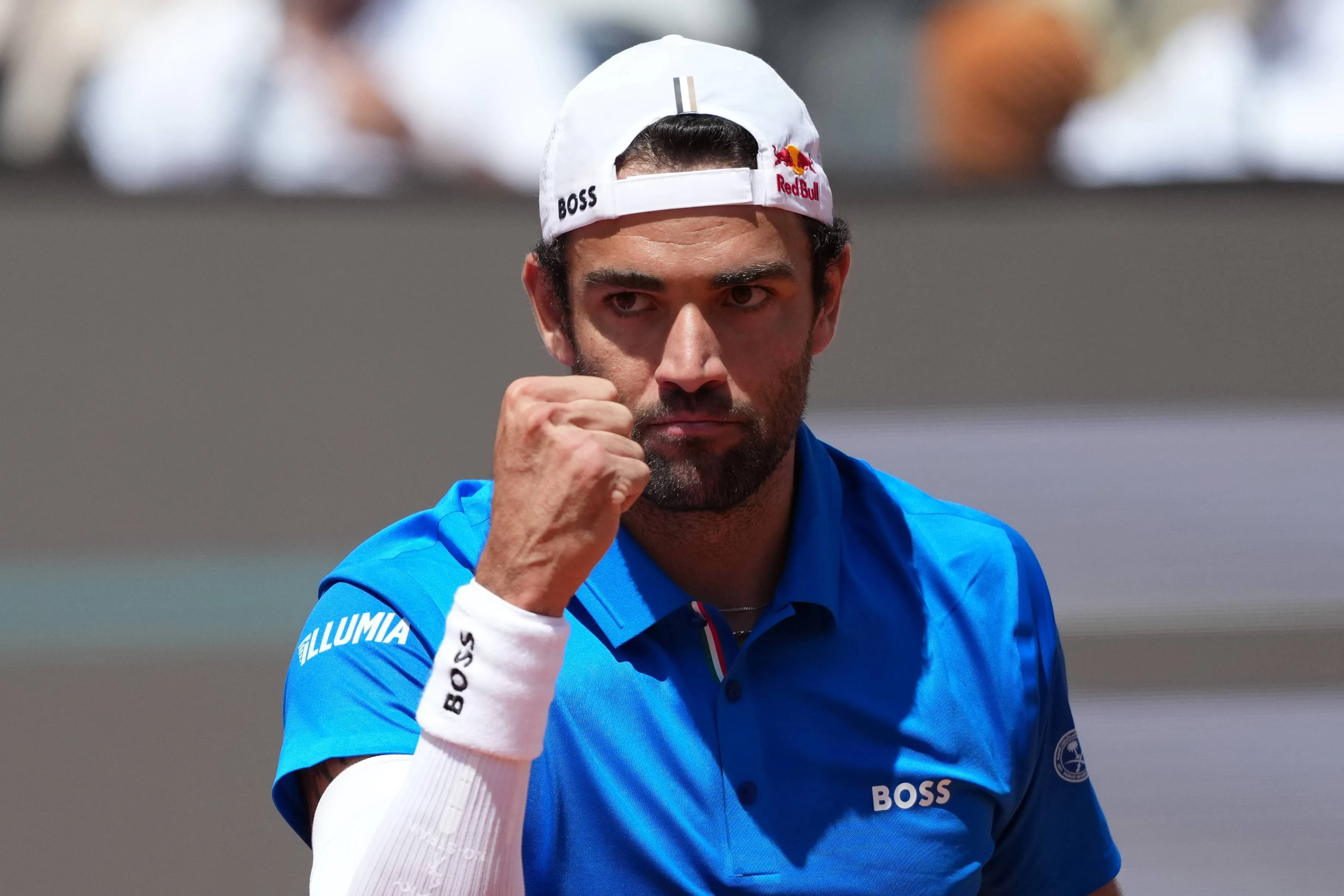"If my story helps one person, it will be worth it": Emil Ruusuvuori shares struggles with mental health
ATPThursday, 22 May 2025 at 11:30

Finland’s Emil Ruusuvuori has opened up about having
difficulty in dealing with mental health. Athletes playing different sports
have often spoken about how difficult it is to deal with situations where nothing
seems in control.
Ruusuvuori has become the latest addition to a long list
of high-profile athletes who have spoken in detail about the importance of mental health. The 26-year-old, in a detailed article written on ATP’s official website, shared his side of the story. He stated that he did not touch a racquet for nearly five months last year. He stated that when things started to fall apart,
he started forgetting things and was unable to focus.
Read also
“For four and a half months last year, I did not touch a
racquet. It was not for a reason you might expect, though,” he wrote. “It was
because of my mental health. When it was bad, I started to forget things. My
body was in one place, but my mind was somewhere else. It would go from
something as simple as nearly forgetting my racquets to suffering panic
attacks. I knew it was going too far at Roland Garros, because what was
happening in my head at tournaments began affecting my life outside the court.
I could not sleep well to the point that I started having nightmares. I would
wake up sweating with my heart pounding, and I couldn’t breathe. It made me
think I was going crazy.”
Ruusuvuori stated that while he has been dealing with
mental health issues since the age of 10 but when it happened this time, it was
more difficult to cope. The Helsinki-born stated that at the beginning, he decided
to take a break to settle things but it did not help as he ended up having a
panic attack on court.
Read also
“The first time I spoke to a professional about my mental
health was about 10 years ago, but my struggles became an issue more recently,”
he said. “Three years ago in Miami was the first time that I experienced a real
panic attack. One morning in Florida I woke up and felt like somebody was
strangling me. It was impossible to breathe. It was like somebody was stepping
on my chest. We got in the car to head to the site and I couldn’t speak. My
mind was going crazy with a million thoughts swirling around. By the time we
arrived, I was shaking. At that point, I was barely able to hold back tears
long enough to tell my coach that I was not okay. I felt so terrible and did
not know what was going on. Somehow I was able to calm down a bit, went on
court to face Maxime Cressy and won the match. Afterwards, I talked about it a
little bit with my team, but not that much. I continued moving along. Part of
the problem is that I learned the way to have success on the tennis court, and
then I just followed that as long as it lasted. I was just keeping my mouth
shut. Something was wrong, but I just continued doing what I had done for so
many years. It was what allowed me to play tennis across the world, so it made
sense, right?
He continued by saying: “I tried to take one or two weeks
off to see if that would help before heading to Surbiton for an ATP Challenger
Tour event on grass. Instead, I actually had a panic attack on court. I would
tell you what it felt like, but I don't really remember the match. During
Wimbledon, I needed to pull off the road, stop and get out of the car because
it sometimes felt like I could pass out. I had no control. Somehow I made the
third round of the tournament, but for half of my match against Giovanni
Mpetshi Perricard, I mentally blacked out. I just remember wanting to run off
the court. It was an absurd place to be — I was playing at one of the events I
dreamt of competing in as a kid and all I wanted was to be somewhere else or
somebody else. Soon enough, I knew something had to change. Enough was enough.”
Read also
The current world number 254 stated that at one stage, he
had to lie about the reason he was withdrawing from the competition because it
was his mind which did not let me him stay focus. Ruusuvuori also shared the
fact that while dealing with mental health issues this time, he realised that
even playing tennis, winning matches was no fun.
“Being a professional athlete, you try to survive any
issues, forget them and just leave them behind in the hopes they go away,” he
continued. “I was somehow able to do it, and that is the cruel part of sports. For
the past 10 years, life was so consistent. There was always the next match, the
next tournament. Everything was always moving and suddenly I did not have that
anymore. That was a shock, because suddenly it was so boring and there was
nothing to do. I didn’t really feel joy in anything anymore. I wasn’t competing
on court, and now I was fighting to get out of bed and honestly even had
thoughts about whether I wanted to live, which was very scary. Even worse was
how this affected those closest to me and how worried it made them I traveled
to Montreal but withdrew citing the stomach flu, but it was really because of
my mind. I decided that was enough. I did not touch a racquet for four and a
half months after that and some of those days were the toughest.”
Ruusuvuori then explained that he got in touch with his
psychologist in the summer which helped him immensely in getting back to normal
life. The 26-year-old also shared the reason behind coming out with his side of
story and stated that ever since he has opened up about his struggles, he feels
‘weight dropped off his shoulders’. Ruusuvuori also stated that if his side of
the story helps even one person, he will feel that he has managed to make a
difference in this fight against mental illness.
“During the summer I began speaking to my psychologist
once a week and told my very close family and friends what I was dealing with,
which helped,” he said. “One of my closest friends went through something
similar, which made me realise that I was not alone in this. That gave me
perspective. That is a big reason why I decided to tell my story earlier this
month on video in Finnish. When the
video was released, it was like a weight dropped off my shoulders, because I
felt like I was always pretending in front of people. It was so difficult. I
could not do it anymore. I didn’t feel like I could be honest and that was
weighing on me. I received a lot of very positive messages. Many different
people with different jobs commented and you could see that it doesn't matter
what you do. Everybody has their own struggles they need to overcome. Some
people said it was brave of me that I did it and it helped them, and that meant
a lot to me. If my story helps even one person, then it will be worth it. My
main hope is for people to know that you should take care of your mind and look
after yourselves. That is the key. If you're not okay, there is no more
important thing than helping yourself. Don't keep everything inside of you. It
is okay to be sad. It is okay to have a bad day. But always remember one thing:
tough times don’t last forever.”
Emil Ruusuvuori did not touch a racquet for four and a half months last year to work on his mental health.
— ATP Tour (@atptour) May 21, 2025
He knew something had to change. Enough was enough.
This is his important story.
claps 0visitors 0
Just In
Popular News
Latest Comments
- "It's just that I would rather someone not come in and tell me 'let's do this', and I disagree with it but have to listen to them." BINGO! There you have it -- plausible Root Of The Problem!!
- She literally just stated yesterday (March 4) to The Guardian newspaper, “I want to come back to my natural way of playing. That takes time to relearn because that’s something that has been coached out of me. It’s just that I would rather someone not come in and tell me ‘let’s do this’, and I disagree with it but have to listen to them". Wow! Seems her priority should be psychological help, then coaching help (once she learns to accept it and stop retiring and withdrawing from tourneys). Until then, her only 'strength' will be maintaining sponsorship millions.
- Hideous situation when low-production athletes can scam sponsors for so long. Nike & Porsche learned their lessons with Emma, even if it took some time to reevaluate (and realize) the trending charts.
- Perhaps cozying-up to the Middle Eastern SPORTSWASHERS may have been a poor choice? Wonder what Rybakina and others are thinking now, since one of them had a missile land not far from their 'free gift' housing?
- All those whom believed they could accept the Sportswasher's money and free housing and still maintain their Freedoms -- how's that going over there at the moment? Not too good??
- Issues much? Why is this story not going away??
- Could they hear the bombing in the background? I imagine the tennis players/teams "living" in Dubai and Doha might be selling their apartments for an excellent price in the very near future... such as it is!!
- Who gives a rat's ass??
- This person has arguably always been a 'problem personality'. Rarely, if ever, has he been The Solution to any matter in sports. More often combative and accusatory via media blurbs and texts. As for his "great success" as a coach -- the planets were aligned in his favor the day The Williams Family signed on to him. The William sisters were going to succeed regardless of his, or anyone else's, input. If you want to know how other players' have been affected by his "coaching" simply study the graphics on a chart. Average results, with a degree of combativeness and animosity in every camp. His "success" is entirely attributed to the natural Williams talent(s). Not unlike Raducanu's claim to fame of winning one title.
- Quinwen learned it's better to have friends in tennis. Happy to see she has changed her attitude on the circuit.
Loading










